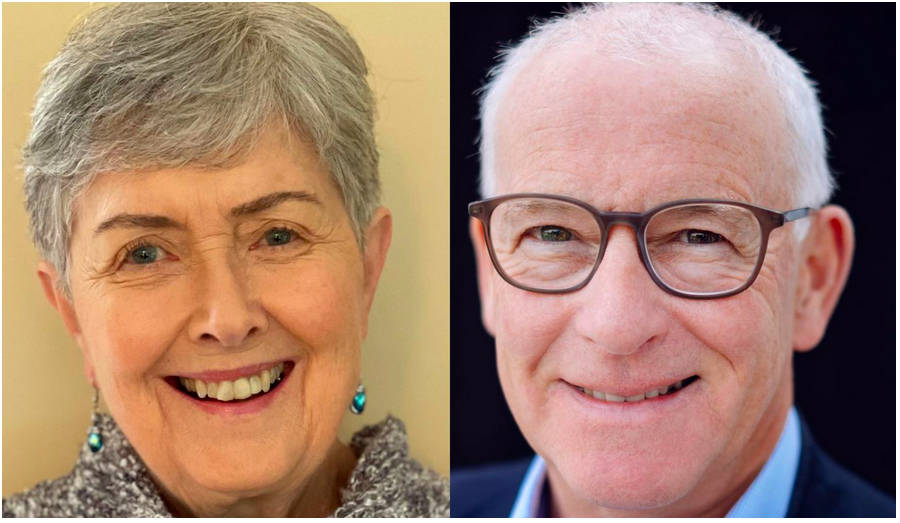Two Recipients Share $250,000 Dr. Rogers Prize for Excellence in Complementary and Alternative Medicine

CONGRATULATIONS
Dr. Linda M. Rapson of Toronto, Ontario (L) and Dr. Gregor Reid of London, Ontario (R) will share the $250,000 Dr. Rogers Prize. The presentations were made both virtually and in person at a gala award ceremony held Thursday, October 14, in Vancouver, BC.
Dr. Rapson is Medical Director of the Rapson Pain and Acupuncture Clinic and Assistant Professor at University of Toronto’s Department of Family and Community Medicine. Impressed by acupuncture’s effectiveness to alleviate pain, in 1975 she took the bold step of leaving her medical practice to work with the Acupuncture Foundation of Canada (AFC) where she played a pivotal role in broadening mainstream acceptance of its practice. Dr. Rapson’s profound belief that health care professionals should work together drove her persistence in bridge-building between East and West to engineer, maintain, and reinforce the growing ties between acupuncture and western medicine. Against great resistance, she helped facilitate the institutional framework to support the incorporation of acupuncture into the conventional portfolio of pain management options, laying the practical groundwork to establish acupuncture as an alternative to pharmaceutical interventions for chronic pain — at a time when chronic pain was rarely acknowledged as a condition being in need of treatment. What seems obvious in hindsight was visionary in the 1980s and 1990s and illustrates her lifelong commitment to drug-free pain relief and patient care.
Dr. Gregor Reid is a Fellow of the Royal Society of Canada and Canadian Academy of Health Sciences, and Distinguished Professor Emeritus at Western University. Born and raised in Scotland, he did his PhD in New Zealand before immigrating to Canada. In 1983 he established the health attributes of lactobacilli bacteria at a time when definitions for probiotic or microbiome did not yet exist. His research into the role of beneficial microbes in the health of humans and other life forms precipitated the advancement of probiotics and beneficial microbes in Canada and around the world. The dramatic results from fecal microbiota transplant (FMT) against C. difficile is the most extreme application of beneficial microbe use in healthcare and Dr. Reid was a member of the Canadian Working Group who published on its promise back in 2012. The microbiome is now ubiquitous in research and practice, supporting the importance of CAM’s focus on nutrition and diet in health. Dr. Reid’s visionary research of probiotics has helped propel the field from the periphery of pseudoscience to its current recognition by the scientific community as a major contributor to health and wellness.


